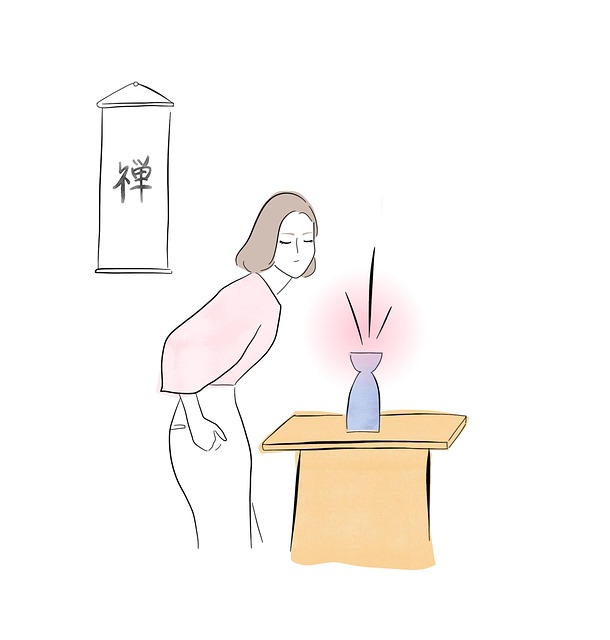Stress is a significant challenge for young adults, arising from academic demands, social pressures, and personal difficulties, which can lead to severe mental health issues. Effective therapy focuses on developing coping mechanisms, including mindfulness meditation, self-awareness exercises, and stigma reduction, to strengthen self-esteem. This empowers young adults to confront stressors, fostering resilience and improved mental wellness. CBT and mindfulness-based therapies teach healthy coping strategies, while cultural competency training ensures tailored support for diverse backgrounds. A comprehensive approach with risk assessments and self-esteem boosting strategies is vital for stress relief in young adults, enhancing their ability to navigate life's challenges.
Stress management is a crucial skill, especially for young adults navigating today’s demanding world. This article delves into effective strategies to combat stress, focusing on its profound impact and offering valuable insights for personal growth. We explore the intricate link between self-esteem and stress resilience, highlighting the power of therapy as a game-changer for young minds. By examining proven approaches, from cognitive-behavioral therapy to practical coping techniques, readers will gain tools to foster mental well-being and build unshakeable resiliency.
- Understanding Stress and Its Impact on Young Adults
- The Role of Self-Esteem in Stress Management
- Effective Therapy Approaches for Stress Relief
- Practical Techniques to Build Resiliency in Young Adults
Understanding Stress and Its Impact on Young Adults

Stress is a pervasive issue among young adults, often stemming from academic pressures, social expectations, and personal challenges. This demographic faces unique stressors that can significantly impact their mental health and overall well-being if left unaddressed. High levels of stress can lead to various negative outcomes, including anxiety, depression, and even physical health problems. Young adults may struggle with low self-esteem, a common consequence of prolonged stress, which can hinder their ability to navigate life’s demands effectively.
Understanding the impact of stress on this age group is crucial. Therapy for young adults often incorporates techniques like mindfulness meditation and self-awareness exercises to help individuals develop coping mechanisms. By fostering self-esteem and reducing the stigma associated with mental illness, these strategies enable young adults to better manage stress and its underlying causes. Self-esteem building, through various therapeutic methods, empowers them to confront challenges head-on, promoting resilience and overall mental wellness.
The Role of Self-Esteem in Stress Management

Self-esteem plays a pivotal role in stress management, especially for young adults navigating therapy. A strong sense of self-worth acts as a buffer against stressful situations, enabling individuals to cope more effectively. When young adults feel confident and valued, they are better equipped to handle challenges without feeling overwhelmed. Therapy for young adults can significantly enhance self-esteem through targeted interventions such as social skills training and conflict resolution techniques.
By improving self-esteem, these therapeutic approaches empower individuals to view stressful events as manageable obstacles rather than insurmountable hurdles. Additionally, maintaining a mental wellness journal has been shown to be an effective stress management tool. Journaling exercises provide guidance for processing emotions, reflecting on experiences, and identifying triggers—all of which contribute to better emotional regulation and overall mental wellness.
Effective Therapy Approaches for Stress Relief

In the quest for effective stress management, therapy plays a pivotal role in equipping young adults with healthy coping mechanisms. Cognitive Behavioral Therapy (CBT) has proven to be a game-changer in this domain. CBT focuses on identifying and modifying negative thought patterns that contribute to stress, anxiety, and low self-esteem. By teaching individuals to challenge distorted thinking and adopt more realistic perspectives, CBT empowers them to manage their emotions and reduce the impact of stressful situations. For young adults navigating the complexities of adulthood, this therapy provides a structured framework to build resilience.
Complementing CBT, Mindfulness-Based Therapies gain prominence for their ability to enhance self-awareness and promote emotional balance. These therapies encourage individuals to stay present, cultivating a deeper connection with their thoughts and feelings without judgment. Incorporating mindfulness practices into daily routines can significantly reduce stress levels and boost confidence, especially when coupled with Cultural Competency Training for healthcare providers. Such training ensures that young adults from diverse backgrounds receive tailored support, addressing unique cultural factors influencing their mental health. A comprehensive approach including risk assessments and self-esteem-boosting strategies forms the backbone of effective therapy for stress relief in this demographic.
Practical Techniques to Build Resiliency in Young Adults

Young adults often face unique stressors related to navigating their careers, financial independence, and personal relationships. Building resilience during this formative period is vital for long-term well-being. Practical techniques such as cognitive-behavioral therapy (CBT) can equip individuals with tools to manage stress effectively. CBT helps young adults challenge negative thought patterns and replace them with healthier, more adaptive perspectives, thereby enhancing their self-esteem and coping abilities.
Additionally, incorporating self-care routines, like regular exercise, mindfulness practices, and engaging in hobbies, plays a significant role in burnout prevention. Encouraging cultural sensitivity in mental healthcare practice ensures that young adults from diverse backgrounds receive tailored support. Promoting healthy self-esteem and resilience through these strategies empowers individuals to face life’s challenges head-on, fostering overall mental health and well-being.
By equipping young adults with stress management techniques, we empower them to navigate life’s challenges with resilience. Understanding the profound impact of stress and recognizing its connection to self-esteem, as highlighted in this article, is a critical first step. Effective therapy approaches, coupled with practical strategies to build resiliency, offer a holistic path to well-being. Fostering self-esteem serves as a cornerstone for young adults to confront and overcome stressful situations, ultimately enhancing their quality of life.












